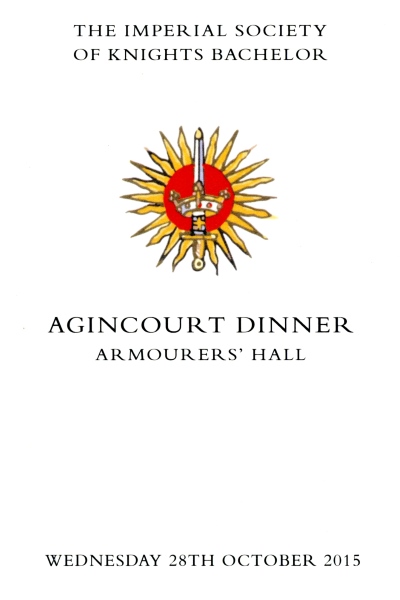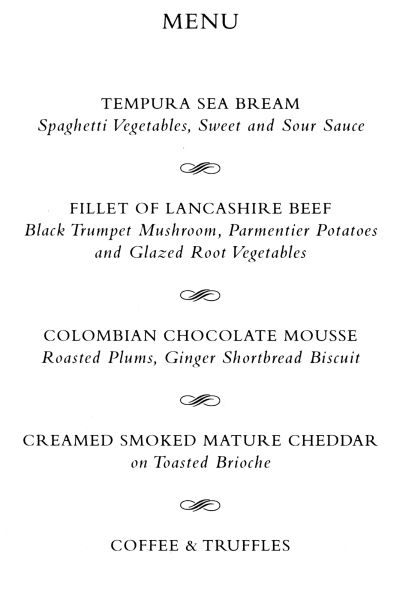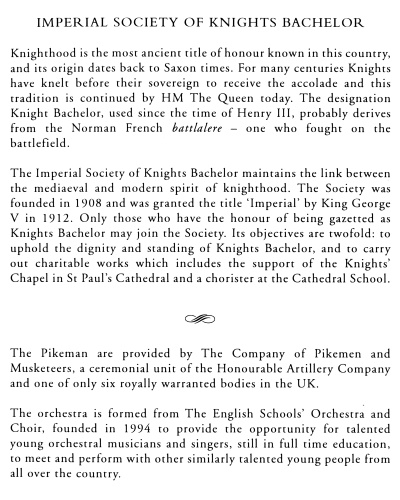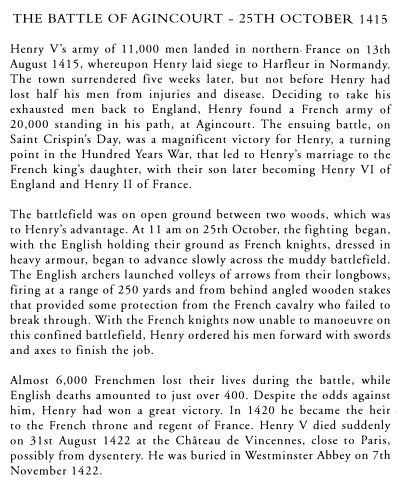
Tel: 020 7620 1818 email: cookandbutler@btconnect.com
The Imperial Society of Knights Bachelor
www.iskb.co.uk
Agincourt Dinner
October 2015, Armourers' Hall, City of London





IMPERIAL SOCIETY OF KNIGHTS BACHELOR
Knighthood is the most ancient title of honour known
in this country, and its origin dates back to Saxon times. For many
centuries Knights have knelt before their sovereign to receive the
accolade and this tradition is continued by HM The Queen today. The
designation Knight Bachelor, used since the time of Henry III, probably
derives from the Norman French battlalere — one who fought on the
battlefield.
The Imperial Society of Knights Bachelor maintains the link between the
mediaeval and modern spirit of knighthood. The Society was founded in
1908 and was granted the title 'Imperial' by King George V in 1912. Only
those who have the honour of being gazetted as Knights Bachelor may join
the Society. Its objectives are twofold: to uphold the dignity and
standing of Knights Bachelor, and to carry out charitable works which
includes the support of the Knights' Chapel in St Paul's Cathedral and a
chorister at the Cathedral School.

THE BATTLE OF AGINCOURT — 25TH OCTOBER 1415
Henry V's army of 11,000 men landed in northern. France on 13th August
1415, whereupon Henry laid siege to Harfleur in Normandy. The town
surrendered five weeks later, but not before Henry had lost half his men
from injuries and disease. Deciding to take his exhausted men back to
England, Henry found a French army of 20,000 standing in his path, at
Agincourt. The ensuing battle, on Saint Crispin's Day, was a magnificent
victory for Henry, a turning point in the Hundred Years War, that led to
Henry's marriage to the French king's daughter, with their son later
becoming Henry VI of England and Henry II of France.
The battlefield was on open ground between two woods, which was to
Henry's advantage. At 11 am on 25th October, the fighting began, with
the English holding their ground as French knights, dressed in heavy
armour, began to advance slowly across the muddy battlefield. The
English archers launched volleys of arrows from their longbows, firing
at a range of 250 yards and from behind angled wooden stakes that
provided some protection from the French cavalry who failed to break
through. With the French knights now unable to manoeuvre on this
confined battlefield, Henry ordered his men forward with swords and axes
to finish the job.
Almost 6,000 Frenchmen lost their lives during the battle, while English
deaths amounted to just over 400. Despite the odds against him, Henry
had won a great victory. In 1420 he became the heir to the French throne
and regent of France. Henry V died suddenly on 31st August 1422 at the
Chateau de Vincennes, close to Paris, possibly from dysentery. He was
buried in Westminster Abbey on 7th November 1422.